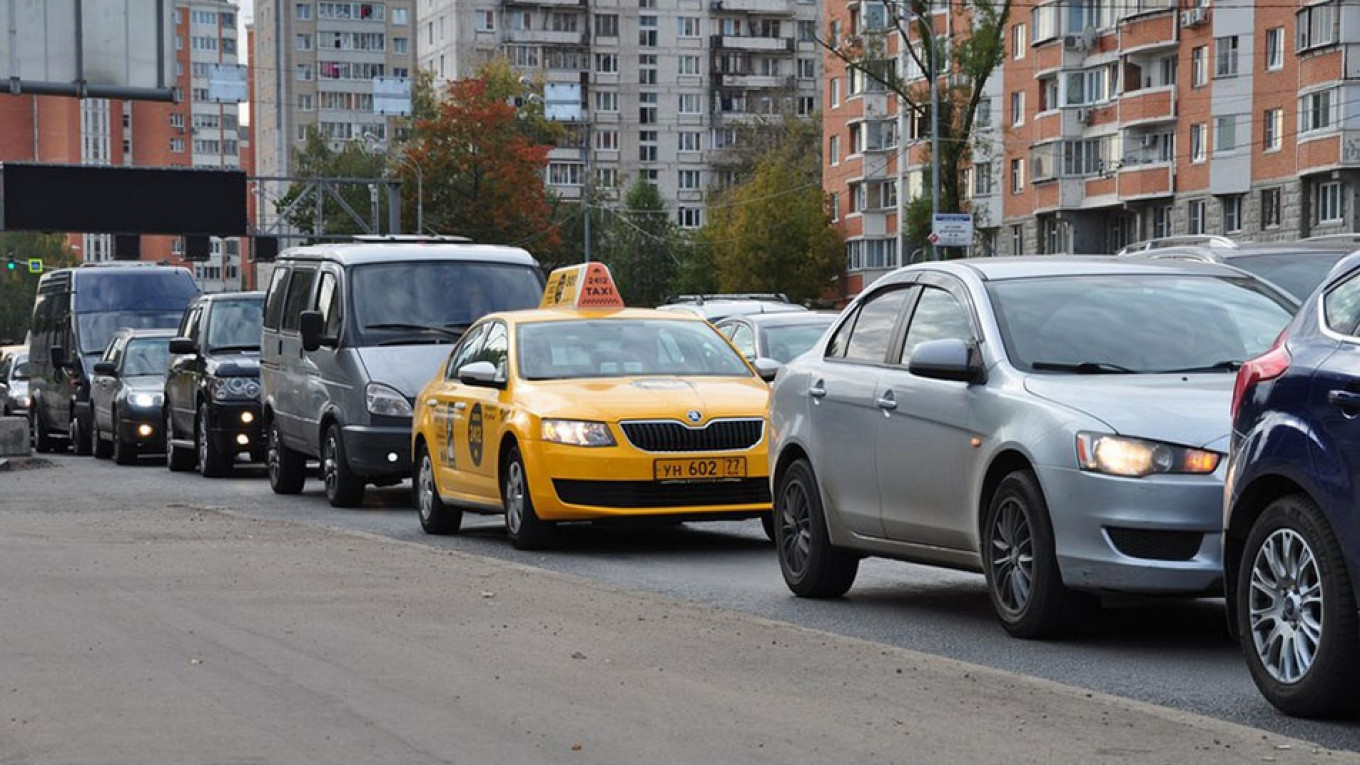Tens of thousands of Moscow residents have taken up car-sharing to combat soaring parking costs and a dwindling number of spaces, a trend that has made the Russian capital one of the world's fastest growing markets for such schemes.
Authorities in the city of 12.5 million have cut the number of parking spaces to encourage residents to walk while increasing parking fees to raise revenue and ease traffic in one of the world's most congested cities.
Those are among the factors that have seen the number of car-sharing journeys leap to at least 30,000 per day, or 9.1 million, between January and September this year, according to Moscow's city authority. JP Morgan put the number of daily car journeys at 60,000 this autumn.
That's a big increase — in 2016, there were just 45,000 car-sharing journeys in the entire year.
Roman Tulnov is one of the new adopters. He sold his Audi A5 after working out it would be $50 cheaper a month to take a taxi to work and back home than to drive. Car-sharing came out at $100 cheaper a month.
He based his calculation on car insurance, petrol costs, garage upkeep and the cost of changing tires every winter and spring, but did not factor in the price of parking, which can cost more than $20 for a full working day in the city center.
"No car, no problem," Tulnov said.
"I don't need to worry when I'm going to book a tire change or if I'm going to make it before the first snowfall, I don't need to worry where I'm going to park. Last new year, some kind folk scratched my car with a key. Why do I need this headache?" Tulnov said.
JP Morgan deems Moscow's car-sharing market to be one of the most developed among major world cities by number of cars and by their number per resident, in research reviewed by Reuters.
There was one shared car per 5,000 residents in Moscow last year, while Washington was the leader with a car for 692 residents, JP Morgan found.
Now, however, there is one car per 1,082 residents in Moscow and city authorities predict that number will fall to one car per 500 residents in the next few years.
There are 15 car-sharing companies operating in Russia, including Delimobil, Yandex.Drive, BelkaCar and YouDrive.
Owning a car is still seen by many Russians as a symbol of status and success, a legacy of the Soviet era, but the increased popularity of car-sharing means some Russians, especially in big cities, are less interested in ownership.
Goldman Sachs research suggests that the car-sharing boom is not expected to undermine new vehicle sales because the service life of shared cars is 3.5 times shorter than privately-held ones.
A Message from The Moscow Times:
Dear readers,
We are facing unprecedented challenges. Russia's Prosecutor General's Office has designated The Moscow Times as an "undesirable" organization, criminalizing our work and putting our staff at risk of prosecution. This follows our earlier unjust labeling as a "foreign agent."
These actions are direct attempts to silence independent journalism in Russia. The authorities claim our work "discredits the decisions of the Russian leadership." We see things differently: we strive to provide accurate, unbiased reporting on Russia.
We, the journalists of The Moscow Times, refuse to be silenced. But to continue our work, we need your help.
Your support, no matter how small, makes a world of difference. If you can, please support us monthly starting from just $2. It's quick to set up, and every contribution makes a significant impact.
By supporting The Moscow Times, you're defending open, independent journalism in the face of repression. Thank you for standing with us.
Remind me later.







